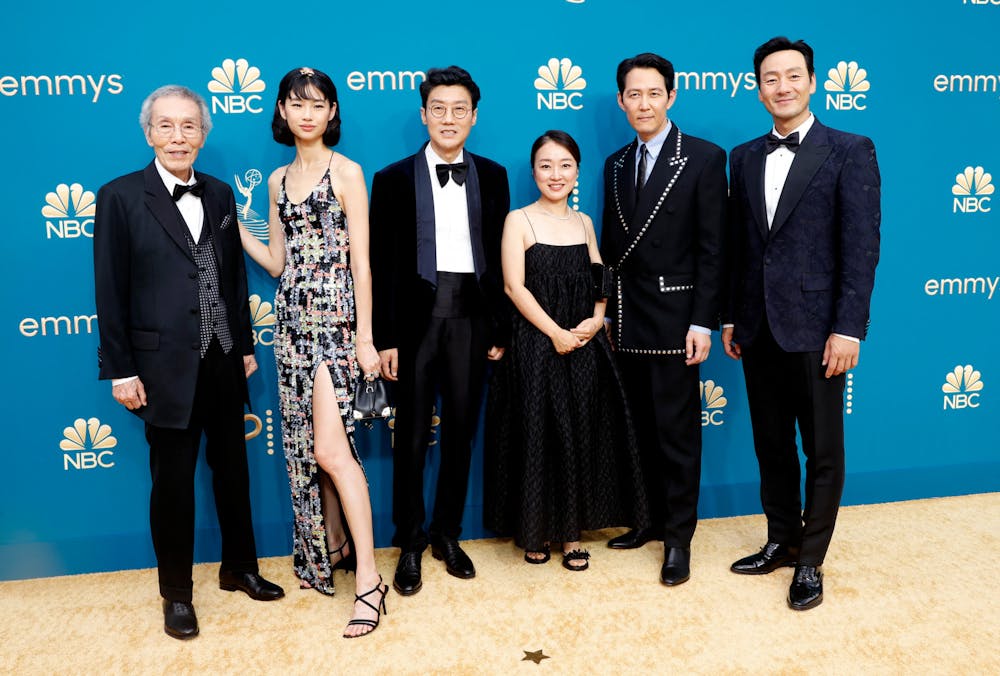Rumors are circulating about a possible American remake of Netflix’s monumental South Korean hit drama series Squid Game, despite the show only releasing two years ago.
To be clear, these are mere rumors that have come out in leaks by reporter Jeff Sneider on The Hot Mic, a podcast about entertainment industry news. Still, if these rumors are true, it would be another in a long line of pointless American remakes of popular foreign films and television.
There isn’t something inherently wrong with remaking foreign media, but these remakes often whitewash characters and stories, and are received by audiences as shallow imitations of the original film or series. A film like 2017’s “Ghost in the Shell” remakes what is a cyberpunk anime cult classic and serves as a pale imitation of the original film. “Ghost in the Shell” was critically panned and met with controversy surrounding the casting of Scarlett Johannson in the lead role playing a Japanese character, according to an article by The Hollywood Reporter.
To those unfamiliar, Squid Game is about 456 financially burdened players who compete in deadly challenges based off of children’s playground games in order to win a fortune. Despite being based on series creator Hwang Dong-hyuk's experiences during the South Korean debt crisis, Squid Game reached a global audience because its themes of class disparity and modern capitalism are so potent and universally resonant. At the same time, audiences can learn about South Korean culture by watching the show or introduce themselves to more of the country’s media after watching it. Remaking the series strictly for the sake of western audiences would dilutes the show's impact.
While Netflix is working on a second season of Squid Game, they have also created a reality show competition where contestants perform in challenges based on those seen in the show for a real cash prize. Some have argued that Squid Game works better as a limited series and does not need a second season, and many have criticized Netflix for making a real version of what is a representation of capitalism’s systematic issues.
It’s not surprising that Netflix is looking to create a franchise out of Squid Game, as it was very successful for the streaming service, garnering six Emmy wins among 14 nominations and being one of the most viewed streaming programs in 2021, according to its Nielsen ratings. However, the show’s massive success does not warrant it being made into a franchise for the sake of Netflix having more exclusive content.
Netflix recently produced a live-action remake of the popular science fiction anime series “Cowboy Bebop” in 2021 and is releasing another live-action remake of the anime “One Piece” later this year.
An American adaptation to Squid Game being made so soon after its release would not be dissimilar to the HBO series adaptation of “Parasite,” which was announced to be in production even before the South Korean dark comedy won the 2020 Academy Award for Best Picture.
“It’s in the same universe as the feature,” the adaptation’s developer Adam McKay said in an interview with MTV’s Happy Sad Confused podcast. “It’s an original story that lives in that same world.”
Like Squid Game, Parasite touched heavily on class structure and the negative effects of late-stage capitalism in South Korea, yet it also ended up resonating well with western audiences.
Considering the lack of acclaim for many of these projects, they must be profitable enough to keep getting made with little regard for quality or purpose beyond remaking and retooling influential Asian media. It is not impossible for a western adaptation or remake of an Asian film or series to be worthwhile, but there is little reason to believe a western adaptation of Squid Game could add anything that was missing from the original series.






